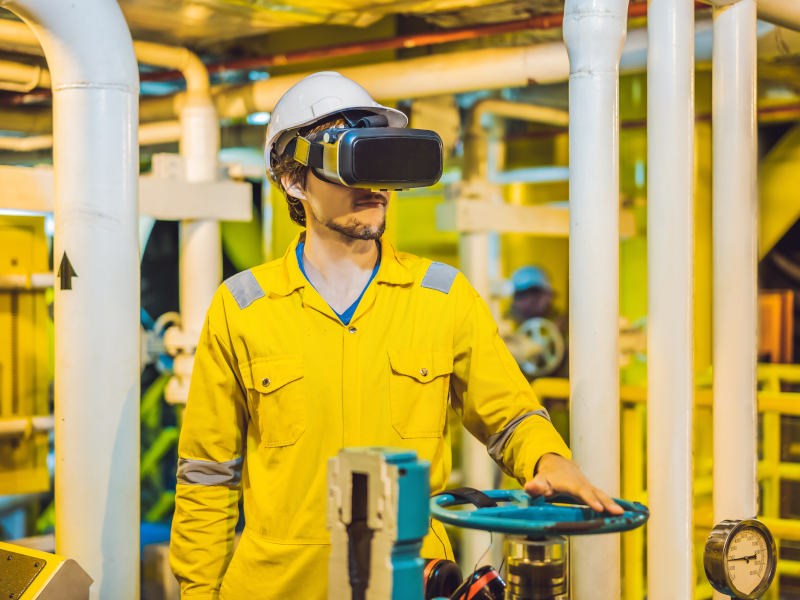Virtual reality in oil and gas industry

Companies in the oil and gas industry strive to preserve and standardize the knowledge and experience of their personnel, so they turn to virtual reality technology to train them to work with critical or dangerous systems. Virtual reality simulators (VR simulators) allow you to train and develop the skill of working with production without threatening the life and health of an employee and the risk of expensive equipment.
VR simulators are immersed in a specially modeled working environment, where the trainee can perform the necessary operations and interact with equipment or tools. Virtual training complexes are more accessible and «more flexible» than real physical simulators. Virtual reality makes it possible to reproduce any scenarios from standard to abnormal working situations, and to train personnel many times before fixing the result, without fear of consequences in case of mistakes. According to the requirements of oil and gas companies, an individual scenario can be created taking into account the specifics of the enterprise.
Virtual reality features:
3D visualization of work operations
VR simulators allow users to experience the effect of being present in a 3D simulation of a real working environment. Virtual reality allows companies to create a «digital double» of an oil field, an oil refinery or another operational unit to assess risks and minimize costs, in the event of the introduction of a new process in oil and gas operations.
Staff training
Virtual reality is successfully used in personnel training in the oil and gas industry. The use of visual immersive 3D models helps in understanding systems and processes in industry. For example, it allows you to create 3D walkthroughs in real places, including oil and gas assets.
Risk management
Field technicians in the oil and gas industry work exposed to dangerous gases and chemicals. Virtual reality simulators train employees to respond to emergency situations by simulating real-world scenarios.
The use of VR simulators opens up a number of advantages for companies in the oil and gas industry:
Increasing the effectiveness of personnel training through practical tasks, interaction and active participation.
Formation of personnel skills that are applicable in a real production environment.
The ability to conduct certification of instructors and students.
Creating zero-risk environments for the development, testing and development of competencies by simulating situations that are not always possible to reproduce in real life.
Reduction of time and financial costs due to the training of a large number of new personnel in the field.
Reduction of equipment maintenance costs by 1-3 % due to the point and operational work of the service operator who has been trained in a virtual environment.

